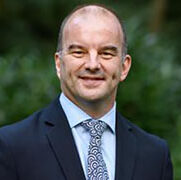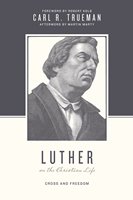Welcome to Books At a Glance! I’m Fred Zaspel, and we’re talking again to Dr. Carl Trueman, professor of Church History at Westminster Theological Seminary here in Philadelphia. Carl has been talking to us about Martin Luther, but today we turn our attention to Ulrich Zwingli.
Carl, who was Ulrich Zwingli? And how did the work of Reformation come about with him?
Trueman:
Ulrich Zwingli was the first great reformer of the city of Zürich in Switzerland. He was born on New Year’s Day in 1484, just a few weeks after Martin Luther. So they were the same age, but in some ways, they came from different worlds. Luther was a medieval man; he trained in a medieval university, medieval curriculum, as a monk, medieval calling. Zwingli was a humanist. He grew up under the tutelage of those who are profoundly influenced by humanism, and specifically by Erasmus. He became a Catholic priest and from 1518 onwards he was a minister in Zürich, where he came to the conviction that the city as a whole, public city, city life, as well as church life, needed to be reformed in accordance with the word of God. His move to Reformation was, I think, more existential than Luther’s. We don’t hear in Zwingli about this great wrestling with his personal sin; but he came to a conviction that life as a whole was to be regulated by the Word of God.
There’s a big debate as to whether Luther triggered him on his path to Reformation or not. It’s hard to get at that because German scholars have a vested interest in making him nothing but a mediocre knockoff of Martin Luther. Swiss scholars have a vested interest in arguing for is fundamental originality. So, it’s difficult to know exactly how and why Zwingli comes to Reformation convictions.
We do know that he kept his papal pension until the early 1520s. He had written critically of the Swiss practice of mercenaries. A large part of the Swiss economy was built upon hiring its men out for mercenary service to other powers. Zwingli was very critical of that, except he said Swiss could legitimately serve the papacy. (You still have the Swiss guard at the Vatican, today, which is a kind of folk echo of that practice.) And the papacy so liked that that they gave him a pension. Zwingli gives up his papal pension in the early 1520s. Embarrassingly late, if you want to claim that you came to the Reformation independent of Luther. Zwingli claims that he did it because he thought it was fun to be a reformer paid by the papacy; but that may well be him rationalizing it after the fact.
Zaspel:
Isn’t there a story about sausage that is of interest here?
Trueman:
Yeah, the Reformation begins in 1522 during the Lenten fast when the Zürich printer, Christoph Froschauer, breaks the Lenten fast with his workmen, and they fry and eat some sausages together. Zwingli is present at the sausage-eating, but he ‘doesn’t inhale,’ shall we say. (Both men laughing). He doesn’t eat the sausage, he merely approves of it by his presence. But the breaking of the Lenten fast is very significant for a number of reasons. Most of all, of course, it represents a shattering of the liturgical calendar and practices of the church. And Zwingli’s Reformation was much more iconoclastic than Luther’s. He was much more a root and branch reformation of church practice. No stained-glass windows, no Lenten fast, these were the things that were focal points for Zwingli’s Reformation. No music in church; Zwingli didn’t like that; no music in church; keep everything strictly according to the word of God.
Zaspel:
How did the Swiss Reformation play out? Can you give us a broad overview?
Trueman:
It generally worked its way out through the key cities. I mean, Zürich and Bern would be the key cities. Bern, under the leadership of Wolfgang Musculus; Zürich under the leadership of Zwingli, and then of Heinrich Bullinger. And these were reformations that were prosecuted through/by the civil magistrate. One of the big differences between the Lutheran Reformation and the Swiss Reformation is the Swiss reformers worked hand in glove with the civil magistrate. You’re not dealing with feudal princes here; you’re not dealing with a monarchy kind of situation. You’re dealing with cities that have a certain limited form of democracy. They are independent of the Empire and are therefore able to set their own policies. So, the Swiss Reformation plays out, really, in the urban context, driven by this close relationship between pastor and magistrate.
Geneva is slightly different. Geneva is a very small and weak city. It was governed by the house of Savoy. When the house of Savoy is kicked out in the early 1530s, Geneva is very dependent upon Bernese protection from the house of Savoy because it’s military and economics are fairly weak. And Geneva also loses most of its elite when it kicks the Roman Catholics out. Where does it replace its skilled labor force from? France. It’s just on the border with France, so, Geneva, although it’s a Swiss city, is in some ways more part of the French Reformation, because it’s the French culture that sets the agenda there.
For those interested, the career of Calvin is really shaped by the tension between the French immigrants, of whom Calvin is the preeminent representative and the need for the Genevan authorities to have the protection of the Swiss city of Bern. That’s an important part of the Genevan reformation story.
Zaspel:
Tell us about Zwingli and Luther. What interaction did they have? How were they in agreement—or not?
Trueman:
When Zwingli first hears of Luther, he admires him. He likes Luther’s attacks on papal authority. He hears of Luther at the Leipzig Disputation, I think, refers to him as the new Elijah. So, he admires Luther to begin with; but, like a number of these relationships involving titanic talents and titanic egos, they ultimately don’t go well.
From the mid-1520s onwards Luther is becoming aware that Zwingli is arguing more and more for symbolic understanding of the Lord’s Supper. And, for Luther, he finds that exegetically indefensible because Christ said, “This is my body, this is my blood,” and theologically disastrous because if Christ is absent from the Lord’s Supper, if the flesh isn’t there, then, for Luther, there’s no grace there. It’s not a Gospel ordinance, it’s a work. When he hears Zwingli talking about, you know, the Lord’s Supper is like an oath, and we all bind ourselves together in the service of God – Luther hears that as the Lord’s Supper is something we do, so it becomes a work, it’s not a means of grace, not something gracious.
So, they end up falling out ferociously over the issue of the Lord’s Supper. Philip of Hesse, one of the Lutheran princes, manages to Luther, Zwingli, and their most trusted lieutenants together at the Marburg Castle in 1529 and they agree on 14 ½ out of 15 points. Of the theological dispute between them, they agree on 14 ½ out of 15. The half point is – Is the humanity of Christ really present in the Lord’s Supper? This is such a critical point for Luther that failure to agree on that really compromises agreement on everything; and there is no agreement between Luther and Zwingli. And Lutherans and Reformed, in their churches, their traditions, split at that point and that split has never been healed.
Zaspel:
What is Zwingli’s outstanding legacy? And why has he sometimes been referred to as the darling of the liberals?
Trueman:
Oh, it’s hard for me to answer this positively, because I’m not a big Zwingli fan.
Outstanding legacy – I’m tempted to say, an absolutely disastrous and sub-biblical view of the Lord’s Supper. (Fred laughing) Just use your evangelical imagination. But that would be harsh, so I won’t say that.
Zaspel:
(Still laughing.) Right. I’m glad you didn’t say that
Trueman:
I think Zwingli’s great legacy from the Reformation is probably an attention to the issue of worship relative to the regulative significance of the Word of God. I think he’s too extreme. I mean, taking singing and music out of worship, for example; I think that was going too far. But I think Zwingli, more than Luther, is concerned about how does what the Bible teach impact the forms of worship? Not just the content of worship, but the forms of worship. So I think that would be his most important positive legacy. Though, of course, he merely starts the discussion. It’s really Bullinger and subsequent generations, Knox, and then the men of the 17th century, who develop and elaborate the regular principle of worship.
Why is he sometimes called the darling of the liberals? Well, first of all, there’s a case to be made for saying that there perhaps is an incipient rationalism in his view of the Lord’s Supper. I’m not sure I’m prepared to go that far, but some have made that case. Lutherans often make that case. And certainly that would be seen as perhaps a point of contact with later rationalism. I’m inclined to think he’s more Biblicist on that point then rationalist.
Also, he has an odd view of who he’s going to meet in heaven – Socrates is going to be there. Even more surprising, Hercules is going to be there. Now, don’t get me wrong, Hercules would be one of the coolest guys. (Both men laughing.) You know, any man who’s beheaded the Hydra and cleansed the Augean stables, and that, has got to be worth meeting. I just have a suspicion that he didn’t exist; and even if he did exist, he probably isn’t in heaven.
So, Zwingli really stands in that tradition, I think, that stems from the Greek apologists, that sees a sort of incipient Christian faith as a broader possibility than you or I would generally see, Fred. And so I think there one could pick up his theology and, if one wanted, develop this in a way that may end up resembling something rather like Karl Rahner’s anonymous Christian idea. There’s a definite positive connection there that could be made between the tradition of thinking that Zwingli represents and what you and I certainly regard as latent liberal tendencies.
Zaspel:
We’re talking to Dr. Carl Trueman, professor of church history at Westminster Theological Seminary. In honor of this 500th anniversary year of the Protestant Reformation he’s been tracking out some of the early steps of Martin Luther and Ulrich Zwingli. Dr. Trueman has written quite a bit on church history, and you’ll want to check out some of his titles here on this page.
Carl, you’ve been a great guide for us – many thanks.
Trueman:
Thanks for having me on, Fred.
Grace Alone—Salvation as a Gift of God: What the Reformers Taught…and Why It Still Matters (The Five Solas Series)
wtsbooks
Paperback
Luther on the Christian Life: Cross and Freedom
wtsbooks
Paperback
Histories and Fallacies: Problems Faced in the Writing of History
wtsbooks
Paperback
The Creedal Imperative
wtsbooks
Paperback
Reformation: Yesterday, Today and Tomorrow
Amazon
Paperback
wtsbooks
Paperback
John Owen: Reformed Catholic, Renaissance Man (Great Theologians)
Amazon
Paperback
wtsbooks
Paperback
Minority Report: Unpopular Thoughts on Everything from Ancient Christianity to Zen Calvinism
wtsbooks
Paperback

